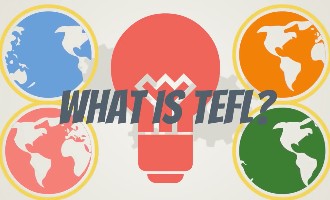TESOL Jobs: Cost & Certification
Are You Thinking About Teaching English As A Second Language (TESOL) Certification? Doing so can be an essential first step toward realizing your goal of becoming an ESL (Teaching English to Speakers of Other Languages) Instructor, however costs associated with certification may differ significantly based on various factors. In this comprehensive guide we will go over all aspects of TESOL certification costs, their value and help you select an ideal program.
Understanding TEFL and TESOL Training Courses:
Before getting into costs, it's essential to understand the difference between TEFL (Teaching English as a Foreign Language) and TESOL training courses. While TEFL primarily addresses teaching English abroad in countries that do not utilize it natively, TESOL covers teaching non-native speakers in both foreign countries as well as English-speaking environments - giving you more options when selecting your certification based on career goals.
1.What is TESOL meaning?
TESOL stands for "Teaching English to Speakers of Other Languages" and is an internationally-recognized discipline which involves instructing non-native English speakers. TESOL educators seek to improve language proficiency, cultural understanding, and communication skills in order to facilitate effective use of English in different situations.
2. What is the average cost associated with attaining online TESOL Certification?
TESOL certification costs can vary widely depending on factors like its level and mode of instruction, course hours and number of course attendees. On average, it ranges between several hundred dollars and several thousand dollars; when making this decision it is essential to compare its benefits against its associated costs and job opportunities.
3. Is getting TESOL certification worth its cost?
Employers in the ESL industry place great value on TESOL certification, and often increase salaries accordingly. By becoming certified, you gain invaluable skills and knowledge needed to teach English as a second language effectively - making a online TESOL certificate an essential investment in your professional growth!
4. What factors should be taken into consideration when choosing a TESOL certification program?
When selecting a TESOL certification program, several key considerations come into play. These include level and mode of instruction; course hours; teaching practicum experience and tutor support; accreditation status as well as any personal factors like time commitment, budget constraints or learning styles and career objectives.
Factors Affecting TESOL Certification Costs:
Numerous factors can contribute to the cost of TESOL certification:
1.Instruction Level and University Courses:
Instructional levels at universities or the higher levels associated with them often have higher costs but offer advanced training and recognition opportunities for their participants.
2. Live Instruction Versus Self-Paced Courses:
Although live instruction provides real-time interaction and can be more costly, self-paced courses offer flexibility and affordability.
3. Number of Course Hours and Online vs In-Person Options:
In general, programs with more course hours tend to cost more; in-person options may incur extra expenses such as travel and accommodation costs.
4. Teaching Practicum, Tutor Support, and Accreditation Status:
Programs offering teaching practicum and tutor support often cost more, yet can offer invaluable hands-on experience. Selecting an accredited program ensures recognition by employers and institutions alike.
Understanding TEFL Certification Levels and Costs:
TESOL certifications typically come in various levels, denoting their depth and breadth of training. Higher-level certifications may come at higher costs; however, these can also increase marketability and qualify you for more advanced teaching positions. Level 3-4 TESOL courses tend to offer cost-effective options that combine affordability with comprehensive education.
Breakdown of Cost for TESOL Certification:
To give a clearer idea of costs, let's break them down by hour commitment, level of instruction and mode of instruction:
1.Hour Commitment:
Programs that require long hours can have higher costs. Before making your choice, carefully consider your availability and level of training that will be needed.
2. Instruction Level:
Higher-level certifications often carry with them increased costs due to more intensive training programs and complex curriculums.
3. Mode of Instruction:
Live instruction with real-time interaction may be more expensive, while self-paced online courses tend to provide more economical solutions.
Additional Potential TEFL Costs:
Planning for TESOL certification requires considering any potential hidden costs that may arise:
1.Additional expenses for in-person courses:
When considering in-person TESOL programs, be mindful of additional costs such as travel, accommodation, meals and transportation expenses.
2. Considerations of Accommodation, Visa Fees, COVID-19 Testing Requirements and Transportation:
When teaching English abroad, additional expenses could include visa fees, COVID-19 testing requirements and transportation expenses.
Components and Requirements of a Standard TESOL Course:
A typical TESOL course typically covers grammar review, teaching methodology, classroom management, lesson planning and practical teaching experience. Requirements for enrolling in such a program vary, though most require at least an equivalent high school diploma and proficiency in English as prerequisites for enrollment.
Selecting an Effective TESOL Certificate:
Picking out the ideal TESOL certificate requires taking into account various considerations:
1. Time Commitment and Type of ESL Position:
Determine how much time you can dedicate to ESL certification, as well as whether you plan to teach abroad or locally.
2. Learning Environment, Budget and Learning Style:
Assess if online or in-person instruction best meets your learning style needs; evaluate budget constraints and take note of preferred learning techniques.
3. Certification Level Requirements and Job Search Help:
To secure teaching positions of interest, determine what certification is necessary and look into programs offering job search support or placement help.
Benefits of Accredited 120-Hour Online TESOL Course:
Opting for an accredited 120-hour online TESOL course offers several advantages:
1. Fulfilling Global ESL Employer and Visa Requirements:
Many employers and visa programs worldwide require at least 120 hours of TESOL training for employment purposes or visa programs, making accredited courses the only way to ensure recognition and meet this criterion.
2. Comparative Affordability and Flexibility with In-Person Options:
Online TESOL courses are more cost- effective, giving more flexibility, so you can study at your own pace from the comfort of your own home.
Acquiring a TESOL certification is an integral step toward becoming a successful English as a Second Language instructor. By understanding TESOL certification costs and factoring in various factors, you can make an informed decision and select an ideal certification program that aligns with both your goals and budget. Remember, investing in your professional development opens doors to TESOL job opportunities!
-
TEFL: Essential for Teaching Abroad Programs
Learn about TEFL exams, certification, and career prospects. Start your teaching journey with TEFL c... -
Teaching Credentials vs Teaching Certificate Online
Explore the differences between teaching licenses and credentials, their requirements in North Ameri... -
What is TEFL: A Key to Opportunities
Benefits of obtaining a TEFL certification and how it can open doors to exciting teaching careers ab...








